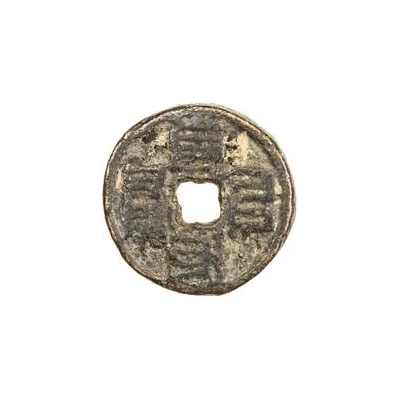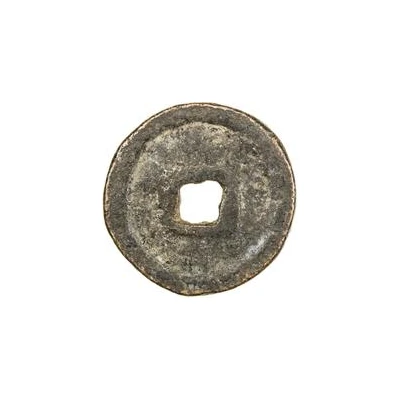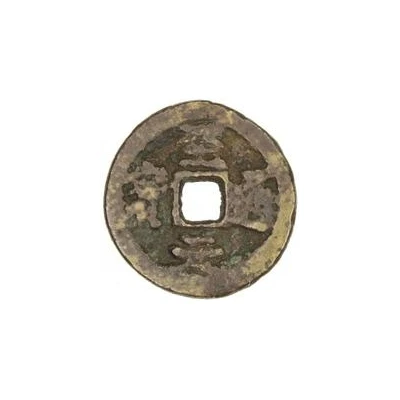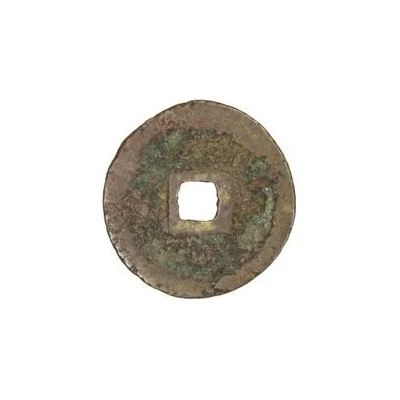


© Stephen Album Rare Coins
Fractional cash - Zhiyuan Tongbao; 'Phags-pa script; temple coin ND
| Bronze | 1.61 g | 17 mm |
| Issuer | Empire of China |
|---|---|
| Emperor | Yuan dynasty › Kublai Khan "Shizu" (元世祖) (1271-1294) |
| Type | Token |
| Years | 1285-1294 |
| Value | Fractional cash (½) |
| Currency | Cash (621-1912) |
| Composition | Bronze |
| Weight | 1.61 g |
| Diameter | 17 mm |
| Shape | Round with a square hole |
| Technique | Cast |
| Orientation | Medal alignment ↑↑ |
| Demonetized | Yes |
| Updated | 2024-10-04 |
| Numista | N#221357 |
|---|---|
| Rarity index | 100% |
Reverse
Blank (uniface).
Edge
Plain
Comment
During the Yuan dynasty, there was a preference for paper money and silver ingots, making actual coins scarce or rare. However, the Yuan dynasty emperors supported Buddhism, and allowed temples to cast their own statues and artifacts. These temple coins were originally cast as offerings to Buddha, but due to their metal content, they still had an intrinsic value. While they were not official issues, these were widely accepted and used as small change in the markets.With these not being official issues, there are different diameters and weights possible. The average weights seem to be around 1/2 Cash, but smaller and larger weights exist.
Interesting fact
One interesting fact about the Token Fractional cash - Zhiyuan (Tongbao; 'Phags-pa script; temple coin) ND (1285-1294) from Empire of China made of Bronze weighing 1.61 g is that it features a unique blend of Chinese and Tibetan influences in its design. The 'Phags-pa script used on the coin is a form of Tibetan writing that was used during the Mongol Empire, and the temple coin designation suggests that it was used for religious purposes. This coin represents a fascinating intersection of cultures and religions during a significant period in Chinese history.

